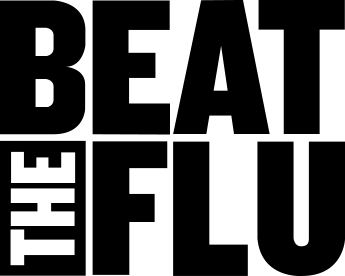How do flu antivirals work?
Antiviral flu medications help you recover by directly targeting the influenza virus in your body.1

When a viral infection occurs, the virus particles start to replicate and spread within the body.2,3 Antiviral medications fight the flu by reducing the virus’s ability to do this.4
By treating the flu in this way, an antiviral could help you to beat the flu sooner than if you didn’t take one. Meaning less impact on work, school and other commitments.5,6
It’s important that you talk to your doctor within 48 hours of noticing your first symptoms of the flu, so that treatment can be as effective as possible.7
Antivirals
vs
Over-the-counter flu
medications or antibiotics
| Antivirals | Over-the-counter flu medications | Antibiotics |
| Require a prescription1 | No prescription needed9 | Require a prescription10 |
| Treat the flu virus directly4 | Treat symptoms rather than the flu virus itself9 | Treat bacteria NOT viruses10 |
| Can reduce the flu’s ability to replicate4 | No effect on the flu’s ability to replicate9 | No effect on the flu’s ability to replicate10 |
| Can help avoid potentially serious complications5,8 | No effect on complications9 | Effective against bacterial complications, but will not help ease your flu symptoms1,10,11 |
- Antivirals
- Require a prescription1
- Treat the flu virus directly4
- Can reduce the flu’s ability to replicate4
- Can help avoid potentially serious complications5,7
- Require a prescription1
- Over-the-counter medicines
- No prescription needed8
- Treat symptoms rather than the flu virus itself8
- No effect on the flu’s ability to replicate8
- No effect on complications8
- Antibiotics
- Require a prescription9
- Treat bacteria, which has no effect on the flu virus itself9
- No effect on the flu’s ability to replicate9
- Effective against bacterial complications, but will not help ease your flu symptoms1,9,10
Using antibiotics when they are not needed can do more harm than good. This is because bacteria can start building resistance to the antibiotic, which can weaken the antibiotic response to any future bacterial infections.12
Did you know?
Flu vaccines are the best way to prevent people from catching the flu each season. But for people who do catch it, antivirals can be used to treat the virus.1
Beat the flu with antivirals, which directly target the flu virus, and stop it from replicating4
Discover more about some of the common misconceptions related to the treatment of the flu.

Antiviral treatments can help you beat the flu.1,4,5
Ask your doctor if an antiviral is right for you.
It’s important to speak to your doctor or healthcare provider as soon as possible.
References
- Centers for Disease Control and Prevention (CDC). What You Should Know About Influenza (Flu) Antiviral Drugs: Fact Sheet, 2018. Available from: www.cdc.gov/flu/pdf/freeresources/updated/antiviral-factsheet-updated.pdf. Last accessed: November 2019.
- Bouvier NM & Palese P. Vaccine 2008; 26(Suppl 4): D49–D53.
- Breitbart M & Rohwer F. Trends Microbiol 2005; 13(6): 278–284.
- Stiver G. CMAJ 2003; 168(1): 49–56.
- Allen UD et al. Can J Infect Dis Med Microbiol 2006; 17(5): 273–284.
- Hayden FG & Pavia AT. J Infect Dis 2006; 194: S119–126.
- Lehnert R et al. Dtsch Arztebl Int 2016; 113(47): 799–807.
- Wallick C et al. Poster presented at IDWeek. 3–7th October 2018. San Francisco, CA, USA.
- Klepser M. Drugs 2014; 74(13): 1467–1479.
- Low D. Clin Microbiol Infect 2008; 14(4): 298–306.
- Bonten M. BMJ 2006; 332(7536): 248-249.
- World Health Organization (WHO). Antibiotic resistance. Available from: www.who.int/news-room/fact-sheets/detail/antibiotic-resistance. Last accessed: October 2020.
